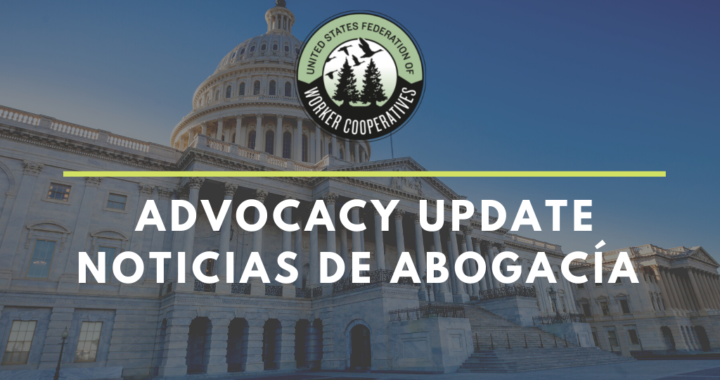Last week, the Small Business Administration (SBA) released new guidance regarding their loans:
Allow SBA Lenders to process loans to a cooperative or an eligible small business owned or controlled by a cooperative under delegated authority. Upon the effective date of this notice, SBA Lenders may use their delegated authority to make loans to Cooperatives and eligible small businesses owned or controlled by a cooperative.
The USFWC is pleased to see SBA enacting guidance that finally allows for an important provision of the Main Street Employee Ownership Act to be realized. This provision allows experienced SBA lenders to approve loans to cooperatives without first getting approval from SBA, so those loans could go through more quickly. This provision, which was authorized in 2018, has been a long time coming.
This provision does not affect the personal guarantee issue that largely excludes cooperatives from comparable access to small business loan guarantees through SBA. Despite the clear direction from Congress and ensuing legislation that has been proposed to address the issue, there remains a clear barrier for small businesses that have cooperative ownership,
“While this updated guidance is a step in the right direction, we hope to see SBA enact the will of Congress and ensure that cooperatives have reasonable access to the same opportunities as other small businesses in the country. This provision does not address the continued issue that member-owners within cooperatives face when applying for SBA loans – a lack of reasonable access. While cooperatives – especially worker cooperatives – have a broad base of stakeholders backed into their ownership and governance, they face overly burdensome administration for loans because of their ownership structure. We believe that having more people with a stake of ownership is a strength that should be celebrated and preferred, rather than penalized,” said Mo Manklang, Policy Director of the U.S. Federation of Worker Cooperatives.
